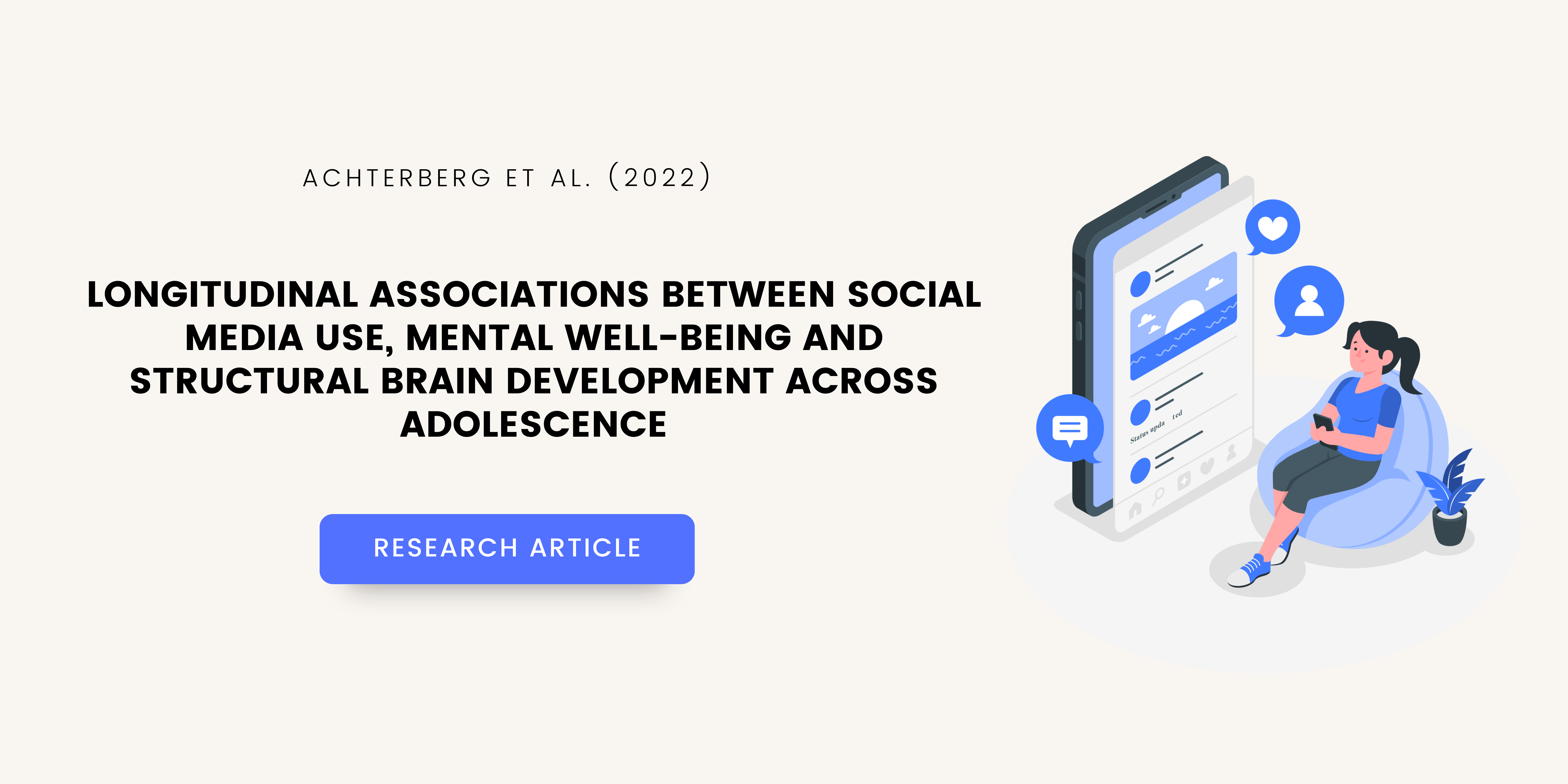Archives
A neurocognitive model of early onset persistent and desistant antisocial behavior in early adulthood

A Neurocognitive Model of Self-Concept Development in Adolescence

Eveline Crone, Kayla Green, Ilse van de Groep & Renske van der Cruijsen What was the goal of this study? We wanted to examine when and how changes occur in self-concept emerge in adolescence, and understand which factors facilitate positive self-concept development. How did we study this? We performed a systematic review of neurocognitive development…
Through the looking glass: the neural basis of self-concept in young adults with antisocial trajectories

A perspective on enhancing representative samples in developmental human neuroscience: Connecting science to society

Resisting aggression in social contexts: The influence of life-course persistent antisocial behavior on behavioral and neural responses to social feedback

Ilse van de Groep, Marieke Bos, Lucres Jansen, Desana Kocevska, Anika Bexkens, Moran Cohn, Lieke van Domburgh, Arne Popma, & Eveline Crone What was our research question? Why do some people show persistent antisocial behavior into early adulthood, while others desist from this trajectory? Does it matter how they respond to social feedback, both behaviorally…
Overlapping and distinct neural correlates of self-evaluations and self-regulation from the perspective of self and others

Ilse H. van de Groep, Marieke G.N. Bos, Lucres M. Jansen, Michelle Achterberg, Arne Popma & Eveline Crone What was the aim of the study? To successfully interact with others, we need to evaluate ourselves (and how we compare to others), and monitor what they think about us. The same brain area (mPFC) seems involved…
Longitudinal associations between social media use, mental well-being and structural brain development across adolescence

Michelle Achterberg, Andrik Becht, Renske van der Cruijsen, Ilse H. van de Groep, Jochem Spaans, Eduard Klapwijk & Eveline A. Crone What was the aim of the study? We aimed to investigate whether there are longitudinal associations between social media use, mental well-being and structural brain development across adolescence. Are social media use and wellbeing…
Social Learning and the Brain: How Do We Learn From and About Other People?

Bianca Westhoff, Iris Koele & Ilse H. van de Groep When you think about learning, you probably think about things you are taught at school. But have you ever realized you use a different type of learning as well, on a daily basis? This type of learning is called social learning, and it has to…
OCD-like checking in the lab: A meta-analysis and improvement of an experimental paradigm

Marcel A. van den Hout, Eva A.M. van Dis, Clair van Woudenberg & Ilse H. van de Groep What was the aim of the study? The first aim of the present study was to conduct a meta-analysis of experiments that used the Virtual Gas Stove Checking paradigm. The second aim of the present study was…
Spontaneous eye blink rate (EBR) predicts poor performance in high-stakes situations

Ilse H. van de Groep, Lucas M. de Haas, Iris Schutte & Erik Bijleveld What was the aim of the study? Why do people ‘choke under pressure’ in high-stake situations? In the current study, we examine two candidate biological, individual differences that may make people more susceptible to such performance impairments. We consider individual differences…
